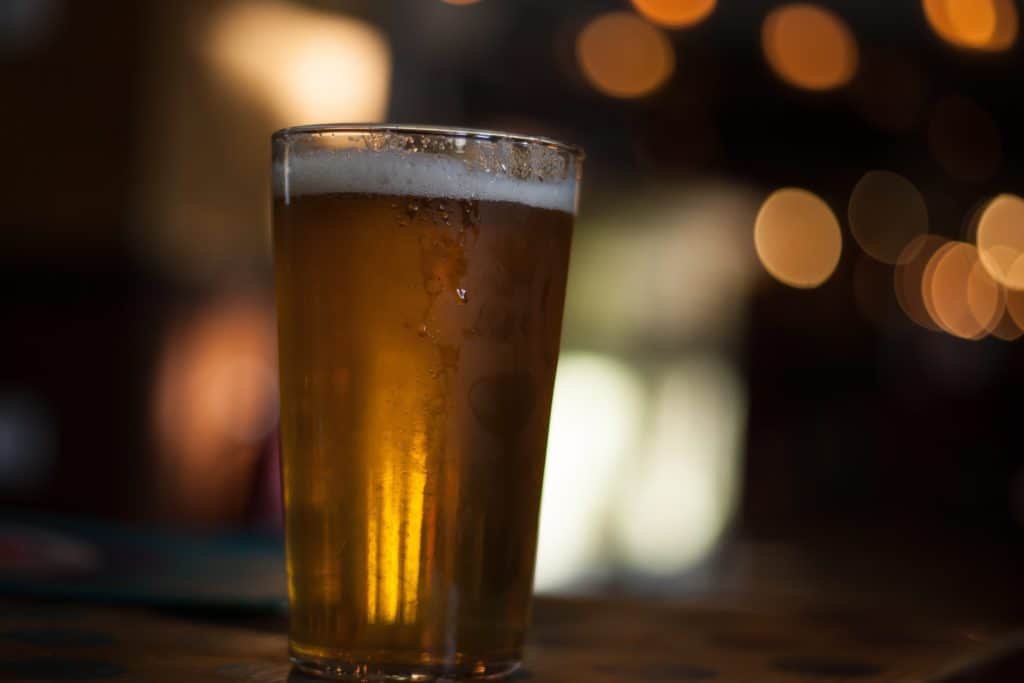Everyone is entitled to occasionally have a drink. While each person’s version is different, some people choose to consume alcoholic beverages during celebrations. Others may drink alcohol while mourning. Many individuals simply have a drink or two in order to “wind down” after a long day. But, often, individuals develop alcohol addictions.
If you happen to be someone who does this, it is important to understand that is it very easy during these situations to overindulge. Since alcohol can stay in your body for up to 80 hours after your last drink, it is important to educate yourself on the risks that can be associated with excessively drinking alcohol. Our team at Northbound Treatment is here to help if you or someone you know needs help with their alcohol consumption habits.
How Does Our Body Metabolize Alcohol?
The way our bodies metabolize alcohol is through our bloodstream and liver, ultimately. Around 20% of alcohol consumed is automatically absorbed into the bloodstream and travels throughout the body to places like the brain and liver. It affects the brain by slowing down functions like speech and thought processes. Also, it forces the liver to use its important enzymes to break it down. The other 80% will absorb into the small intestine located in our bowels.
Our bodies are very hardworking. They are constantly breaking down things that we eat, fighting illnesses, and even producing waste. Our bodies are already using energy to do many necessary bodily functions in order to keep us alive. So, it can really take a toll when we start abusing them by consuming harmful products like alcohol. A small amount of alcohol will have little to no effect on the body. But, once a person starts drinking large amounts frequently, their body will slowly start to feel the effects of the alcohol.
What is “One Drink” of Alcohol?
There are four different types of alcohol a person can consume: beer, malt liquor, wine and spirits. A “drink” of each one is measured based on the type and also the alcohol percentage each one contains.
- 12 fluid ounces of beer (5% alcohol or under)
- 8 fluid ounces of malt liquor (7% alcohol or under)
- 5 fluid ounces of wine (12% alcohol and under)
- 1.5 fluid ounces of spirits (40% alcohol)
Each one of these is measured by how much alcohol the average person can have “per hour” in order to stay under the legal BAC driving limit of 0.08%.
At What Point Does Alcohol Start Affecting the Body?
One can determine the effects of alcohol and how intense they can be by many factors. Also, these effects and their intensities generally vary from person to person. Some genetic factors include weight and gender. If someone is of lighter weight and does not consume alcohol on a regular basis then they will most likely feel a greater effect. Women’s bodies also absorb alcohol faster than men’s bodies do, so they will most likely have a lower tolerance.
Some other factors include the rate of consumption, amount consumed and whether or not you ate food before you started drinking. If two people of equal bodyweight and gender are drinking together, the one drinking more drinks at a faster rate will obviously feel a greater effect than the other person. The person who ate before they started will feel less of the effects as well because some of the alcohol will be absorbed into the food instead of the small intestine.
Signs of Drunkenness
Drinking too much alcohol causes brain function to slow down. This brings about many behaviors that someone wouldn’t normally display in public. There are people out there who are able to mask certain signs of drunkenness But some things to look out for when someone has had one too many drinks can include:
- Slurred speech and rambling thoughts
- Trouble remembering actions and conversations that took place
- Breathing heavily or loss of breath
- Difficulty concentrating and confusion of surroundings
- Making choices one wouldn’t usually make
- Impaired coordination such as stumbling
What is BAC and How Can it Be Tested?
BAC (blood alcohol concentration) is the technical term for how much alcohol is present in a person’s bloodstream after consumption. It is measured by the mass of alcohol per volume of blood. Usually, it is written in a decimal form, such as 0.10%.
There are three types of BAC testing, and the type used will be determined by the situation at hand. The first type of test is the one most people are familiar with called a Breathalyzer. These are lightweight, compact and most often used by law enforcement, and they work by measuring the alcohol tat passes through alveoli air sacs as blood flows through vessels in the lungs. Even though they are convenient, they are not as accurate as the blood testing that is sometimes done.
The second type of BAC testing is the blood test. Blood is drawn from the individual and analyzed to determine the amount of alcohol within the bloodstream. They are extremely accurate but not as easily done, which is why they are the least used of all three.
The last type of testing is done through a person’s urine. This is the least accurate type of testing available, but it can be done if someone is not able to or refuses a Breathalyzer. Samples of urine are taken and analyzed, but results can be inaccurate due to alcohol not showing up in the urine by allowing too much time to pass before taking the test.
How Long Does Alcohol Stay in Your Urine?
Even though alcohol can stay in your urine for up to 80 hours at a time, older BAC urine tests could only detect alcohol a maximum of 24 hours after consumption. Modern urine tests that have been developed with ethyl glucuronide and ethyl sulfate can now detect alcohol up to 72 hours after consumption. Because of its high inaccuracy levels, urine testing is a bad representation of the actual alcohol level present in the system.
How Long Does Alcohol Stay in Your Blood?
Alcohol can stay in the bloodstream for more than 36 hours, but blood BAC tests can only measure alcohol levels up to 12 hours after the last drink. Even though alcohol stays in the blood for less time than it does in urine, blood tests are still more accurate than urine tests.
What is Alcoholism and What Does it Affect?
Alcoholism is a substance use problem that causes someone to be physically and mentally dependent on alcohol. Individuals who suffer from alcoholism feel that they must use alcohol in order to go about their daily lives. Alcoholism is an act that starts with a choice but ends up being something that is out of the person’s control.
The reason behind this is because alcohol makes people associate happier feelings while using than when they are sober. This in turn forces them to use the alcohol as a crutch in order to avoid dealing with the struggles of their day-to-day life.
When people develop a dependency on alcohol, it greatly affects their bodies and minds. Drinking excessively puts incredible strain on organs, especially the liver. The liver is responsible for breaking down substances that enter the body. But it has to work overtime in order to break down the alcohol that is constantly flowing the bloodstream if someone is addicted.
If an individual can’t control his or her drinking habits, he or she may be at risk for developing cirrhosis, or scarring of the liver. When this happens, it is possible for someone to develop liver cancer or even go into liver failure.
Not only is your liver affected but so is the rest of your body. A person who constantly drinks alcohol will have trouble with everyday short-term thoughts like remembering where they put their keys. They may also start to develop changes in their physical characteristics like wrinkly skin and large circles under their eyes due to sleep loss.
When to Get Help
Addiction is an illness and a long-lasting brain disorder. There are signs to watch out for if you believe that someone you love may be developing an addiction to alcohol. When determining if someone you know has alcoholism, behavioral changes are likely the first signs you will notice.
Someone who is drinking heavily will often be deceitful and lie about what they are doing and where they are going to continue their dependency. They will have a hard time concentrating on tasks and usually develop anger issues or depression symptoms, as well. When noticing these signs of addiction, it will be time to start considering talking to them about facilities that help like ours at Northbound.
Signs of addiction aren’t always the easiest to spot at first. Because they develop a tolerance to the substance over time, addicts can have normal behavior while under the influence. In order to become aware of what’s going on underneath of the surface when figuring out if someone you know has developed an addiction problem, you will have to start to monitor certain changes in their behavior.
At Northbound, we strive to educate loved ones on things to watch if they have suspicions someone they know is struggling with alcoholism. We believe some telltale signs of alcohol addiction include:
- Unexplained irritability and mood swings
- Becoming isolated from friends and family
- Drinking alone or in secrecy
- Feeling hangover symptoms when no alcohol has been consumed
- Physical changes to the face like baggy under eyes and gray skin
- Short-term memory loss and trouble concentrating on tasks
Types of Treatment Available
Our team at Northbound believes in encouraging our patients to be healthy, alcohol-free individuals by the time rehab has been completed. We first start our patients out in a medical detox that removes the alcohol from their bodies in a gradual manner. By slowly taking away the alcohol instead of trying to go cold turkey, the patient has a higher success rate of completing the detox.
After detox is completed, the next important step is determining what type of program the patient will need. The patient’s commitment to our programs is their key to success, and to complete most of them, individuals will have to devote 4-5 months of their life in order to achieve sobriety.
Some of our therapies at Northbound include:
Family Counseling Programs: In these programs, family members come in to help both the patient and relative understand a better way to cope with recovery. Both parties are able to share thoughts and feelings on the subject. Also, the program helps to bond one another closer together. This shows the recovering addict they have a long-lasting support system after rehab completion.
Individual Therapy: This therapy allows the patient to talk solely with their therapist. It enables people to about things they may not feel comfortable sharing among others. This often helps patients to process the emotional side of past situations. These situations ultimately may have helped lead them to their addiction. So, it’s important for people to have a safe place where they can work through these emotions.
Group Therapy: This is another term for a group meeting setting. Primarily verbal to allow patients to interact with one another and share stories of their recoveries and experiences while using. This gives the patient support from people going through similar situations.
Dual-Diagnosis Therapy: Oftentimes, patients receive a diagnosis of multiple disorders at the same time. For example, a person may have an anxiety disorder while also having a substance disorder. This therapy treats both disorders at the same time. It also allows the patient to decrease the time spent in our rehab facility.
We also offer recreational therapies and meditation techniques. These methods focus on relieving the mind and body of unwanted stress that may have caused the addiction in the first place.
Recovery Is Possible
Don’t waste another day of your life questioning whether you will ever overcome your addiction problem. There are professionals within our facilities willing to give you all the answers you need in order to start the process.
Quality treatment at Northbound Treatment can help you beat your addiction, permanently. If you have the courage to make this life-changing decision, we will help guide you to sobriety. Contact our office at (866) 511-2458 to learn more about this opportunity to gain back control of your life.
Author
-

President, CEO & Founder at Northbound Treatment Network
Paul Alexander is the CEO, President & Founder of Northbound Treatment Network in Newport Beach, California. He believes wholeheartedly in transformational leadership, organizational health and effective, fully integrated substance use disorder and mental health treatment. With over 27 years of experience in behavioral healthcare, Paul has extensive knowledge of “in vivo” treatment modalities, clinical development, operations, strategy, marketing and financial planning. He has been widely recognized for his development of collegiate-based residential treatment programs for students in recovery and authored a research study at The University of California confirming this modality’s effectiveness.
Paul’s comprehensive professional experience, willingness to innovate, and emphasis on organizational health are vital factors in Northbound’s continued success. Paul received his Certified Addiction Treatment Specialist training at Saddleback College in Mission Viejo, CA, and was awarded Outstanding Alumni Service Award in 2002. Paul holds a Bachelor of Arts degree in Criminology, Law and Society, Summa Cum Laude, from University of California, Irvine, and a Juris Doctorate degree from Loyola Law School of Los Angeles. Paul currently serves on The National Association of Addiction Treatment Providers (NAATP) board. In addition, he serves on The Family Recovery Foundation board and The CarePossible board in Orange County; both organizations are committed to raising funds for family recovery and treatment for former military personnel. Paul is in recovery himself and lives in Orange County with his wife Silvana and his two young sons, Noah and Dean.










